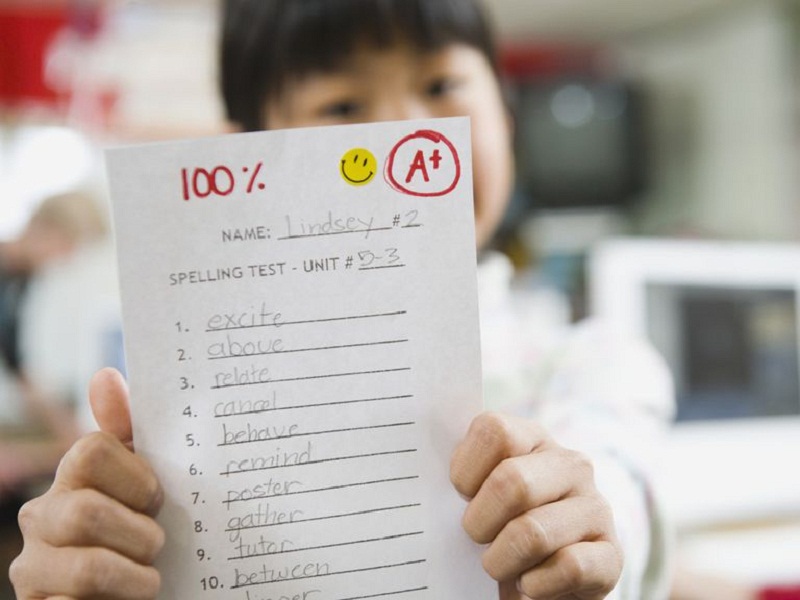Although for parents it is a true joy that children get good grades in class, it is not an advisable technique to establish a cause-effect relationship between grades and gifts. The really important thing is to know should students be rewarded for good grades.
The fact that the children take great care in their homework and get good grades is a joy for every parent. The successes of the children are, in part, achievements of those who daily take care of them and offer them opportunities for study and learning. How to express that pride, that satisfaction? Is it good to reward the children’s grades?
Should students be rewarded for good grades?
In this dilemma, it can not be ignored that each person possesses more a type of intelligence-emotional, spatial, linguistic, musical, etc. The good or bad grades would be framed as a part within the wide range of potentialities that make up a person.
This means that a ‘bad grade’ in an area of study should not worry anyone, as long as the other potentialities of the child develop.
However, even the note seems to define children, as if the higher it is, the better the person who gets it. What decision to make regarding the qualifications of the children, in a meritocratic society?
As can be glimpsed, the issue of rewarding children’s grades has deep ethical and political implications. It is about thinking about what type of society is desired and what model of citizenship is projected when raising children.
Reward children’s grades: favorable positions
When a father gives a prize to the son who got good grades in school, what he tries to tell him is that effort, perseverance and hard work pay off. It is evident that any person likes to receive recognition for a job well done: from artist prizes to executive bonuses.
In these cases, the prize is a motivation, an incentive. There are even those who plan the gift together with the children, choosing carefully throughout the year what the child will enjoy.
In this way, a positive exchange occurs, and long-term thinking is stimulated. However, it would be necessary to see what happens if the child tries hard and, even so, does not succeed.
The post-holiday syndrome in children is something that affects a very high number of students when resuming the usual schedules.
Why should not we reward the children’s grades?
Each case is particular; every child, every effort and every father. Perhaps it is not about giving clear answers, but looking for alternatives. The one of accompanying the process of learning of the children of constant way is a more than valid option. The child or young person who knows that he has a backup will gain confidence at the time of sitting with the books.
Promptly, an argument against rewarding children’s grades is that, with the gift, they take away a sense of responsibility. There are extreme cases of parents who give money to their children for each time they complete their tasks. These actions, which at first sight seem loving and worried, seem to have a different background.
“Even the note seems to define the children as if the higher it is, the better the person who gets it”
If a father wants his son to acquire knowledge and perform well in school, should not he be sitting next to him? How is it helped if you only receive money or toys for your effort?
Here is another important issue when deciding whether to reward children’s grades: the human need to demonstrate, to themselves and their environment, that they can.
The goal of getting good grades
The habit of rewarding children’s grades periodically can also be a bit confusing. On the one hand, the child will come to feel that the parents are a kind of debtors who have to pay their way. So the sweet and tender student would end up being the main tyrant of the house.
Prizes work like threats: Things are not done well for pleasure, but not to be punished. Another reason against the awards is that they end up becoming an end in themselves. The child will not study to know and learn new things, but to receive his gift or surprise.
The effort loses its value: The child loses its autonomy. In this sense, prizes work like threats: things are not done well for pleasure, but not to be punished.
In conclusion,
The responsibility for education belongs to the parents. Sending a child to school does not mean neglecting their education. On the contrary, parents and children must sit down daily, review what has been given in classes, talk about different points of view about a topic, and what comes up each day.








